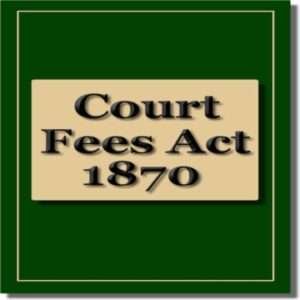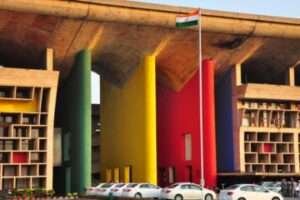Lodging Juveniles In Adult Prisons Amounts To Deprivation Of Their Personal Liberty
Case: Vinod Katara vs State of Uttar Pradesh
Coram: Justices Dinesh Maheshwari and JB Pardiwala
Case No.: WP(Crl) 121 OF 2022
Court Observation: “In view of Section 7A of the 2000 Act referred to hereinabove, applicable to the writ applicant herein, the plea of juvenility could be raised in any court, at any stage even after the final disposal of the Special Leave Petition under Article 136 of the Constitution. In the case of the writ applicant herein, his Special Leave Petition had also been dismissed by this Court. However, this Court is still obliged to consider the plea of juvenility taken by the writ applicant and grant him appropriate relief. The fact that the 2000 Act has later been replaced by the 2015 Act would make no difference.”
“While appreciating the evidence adduced on behalf of the accused in support of the plea that he is a juvenile, if two views are possible on the same evidence, the Court should lean in favour of holding the accused to be juvenile in borderline cases. The inquiry contemplated is not a roving inquiry. The Court can accept as evidence something more than an affidavit i.e. documents, certificates etc. as evidence in proof of age. A mere opinion by a person as to the accused looking one or two years older than the age claimed by him (as the opinion of the head master in the present case) or the fact that the accused told his age to be more than what he alleges in the case while being arrested by the police officer would not hold much water. It is the documentary evidence placed on record that plays a major role in determining the age of a juvenile in conflict of law. And, it is only in the cases where the documents or certificates placed on record by the accused in support of his claim of juvenility are found to be fabricated or manipulated, that the Court, the Juvenile Justice Board or the Committee need to go for medical test for age determination.”
“However, in India, the factors like poverty, illiteracy, ignorance, indifference and inadequacy of the system often lead to there being no documentary proof of a person’s age. Therefore, in those cases where the plea of juvenility is raised at a belated stage, often certain medical tests are resorted to forage determination in absence of the documents enumerated in Section 94 of the Act 2015. The rule allowing plea of juvenility to be raised at a considerably belated stage has its rationale in the contemporary child rights jurisprudence which requires the stakeholders to act in the best interest of the child.”
(i) We direct the Sessions Court, Agra to examine the claim of the writ applicant to juvenility in regard with law within one month from the date of communication of this order; (ii) The concerned Sessions Court shall also examine the authenticity and genuineness of the Family Register sought to be relied upon by writ applicant convict considering that the document does not appear to be contemporaneous. This document assumes importance, more particularly in the light of the fact that the ossification test report may not be absolutely helpful in determining the exact age of the writ applicant on the date of incident. If the Family Register on record is ultimately found to be authentic and genuine, then we may not have to fall upon the ossification test report. In such circumstances, the Presiding Officer concerned shall pay adequate attention towards this document and try to ascertain the authenticity and genuineness of the same. If need be, the statements of the persons concerned i.e. from the concerned government department may also be recorded; (iii) The Sessions Court shall ensure that the writ applicant convict is medically examined by taking an ossification test or any other modern recognized method of age determination; (iv) The Sessions Court concerned shall submit its report as regards the aforesaid to this Court within one month from the date of communication of this order; (v) The Registry is directed to forward one copy of this order to Sessions Court, Agra; (vi) We request the learned counsel appearing for the State to take appropriate steps to facilitate the Sessions Court to complete the enquiry.
Previous Posts




